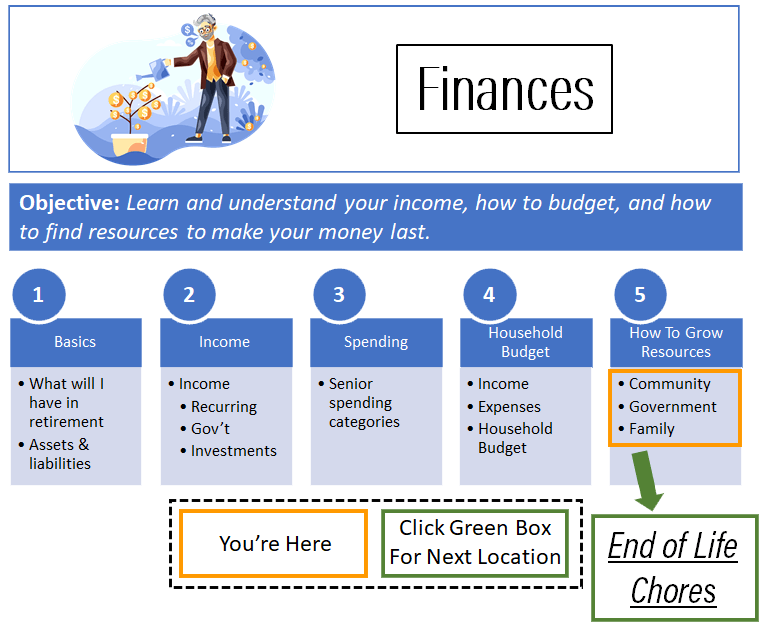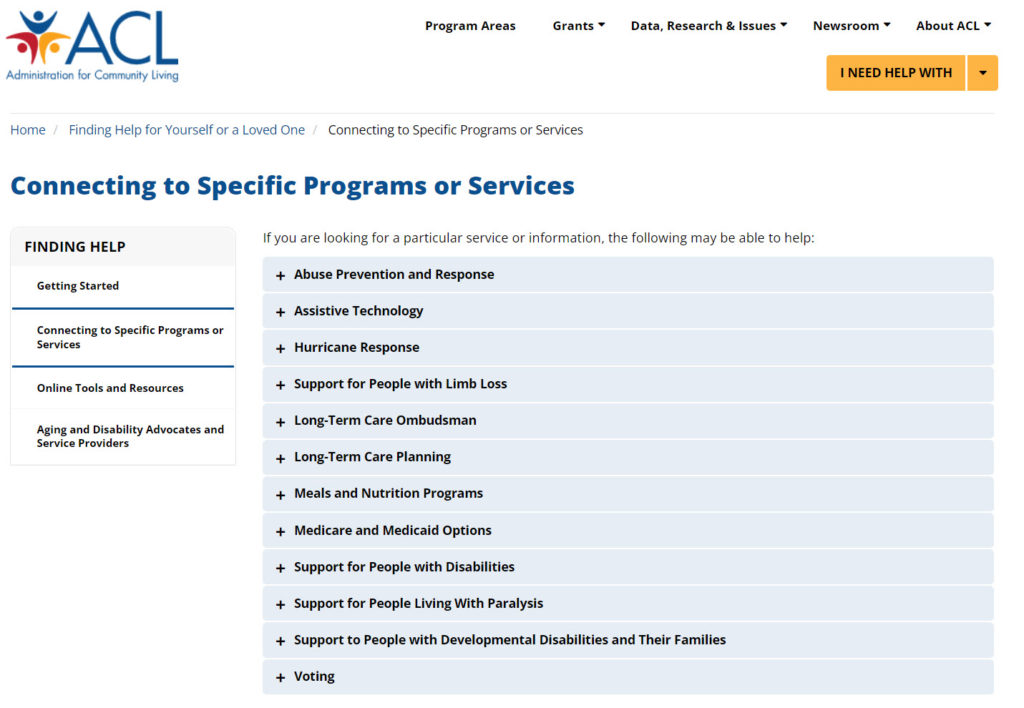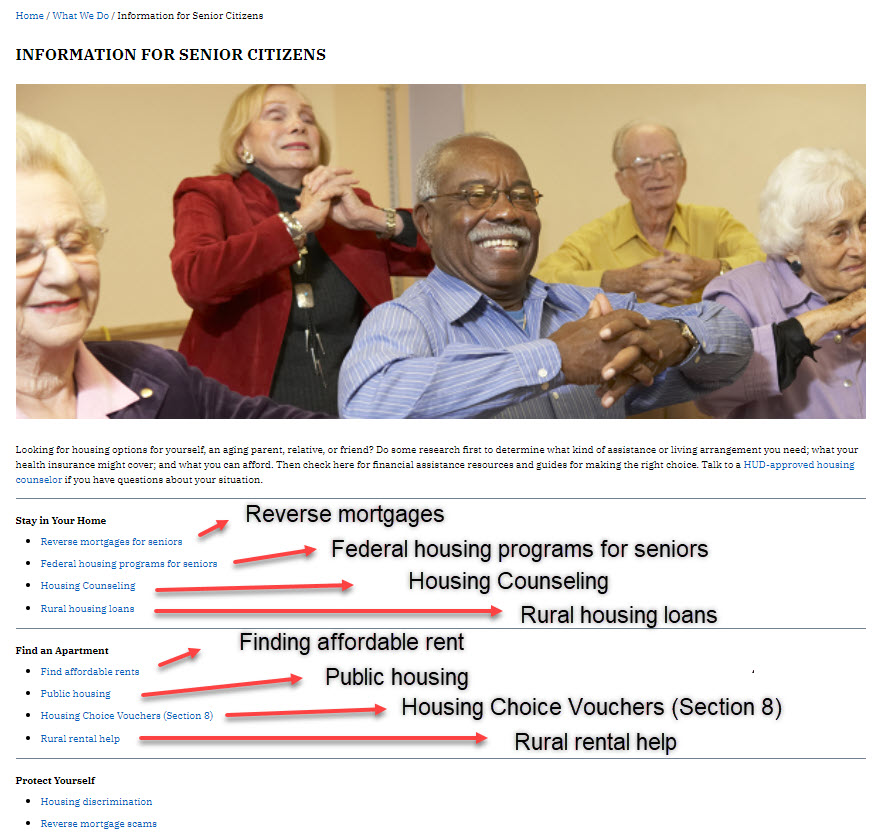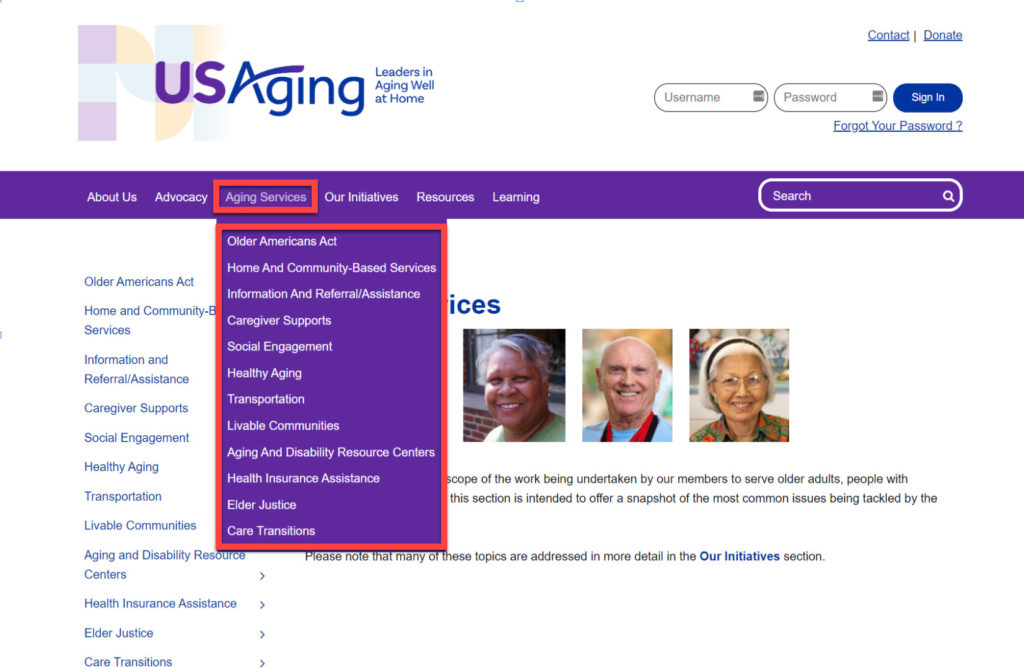Growing Retirement Resources – A How-To Guide
Click here to see what's on this page.
Growing retirement resources post-retirement is a challenge. You may believe your resources are fixed. However, that’s not true. At CarePlanIt, Carmen and I like to teach seniors and their families to fish and show you the best places. Once you and your loved ones learn to fish, you know how to grow your retirement resources. This process can be the key to making it through retirement with the things you need. There are three main ways seniors expand their resources.
government programs, faith-based programs (including community programs), and family.

Government Programs (Excluding SSI and DSI)
How do you find these programs? Don’t panic! There is a kind of Hitchhiker’s Guide To The Galaxy (a humorous science fiction book by Douglas Adams that sold 16 million copies describing the best way to travel the galaxy). We’ve created a guide for you. It involves following the money. For example, for senior services, it is the ECOSYSTEM of government and government-supported nonprofit entities. In other words, housing, health, food, and transportation programs are wrapped into these government ecosystems.
There are hundreds of billions of dollars in government expenditures made every year to support seniors. In addition, there are hundreds of billions of dollars of in-kind services provided by volunteers who choose to help seniors. These dollars are spread over 1,000’s of federal, state, and local entities. The focus of these government programs is on the four biggest concerns of seniors: housing, health, food, and transportation. How do you find these programs? Don’t panic! There is a kind of Hitchhiker’s Guide To The Galaxy (a humorous science fiction book by Douglas Adams that sold 16 million copies describing the best way to travel the galaxy). We’ve created a guide for you. It involves following the money.
For example, for senior services, it is the ECOSYSTEM of government and government-supported nonprofit entities. In other words, housing, health, food, and transportation programs are wrapped into these government ecosystems. organizations that receive funds to promote a goal. We explain these below.
Government Health & Food Programs – Retirement Resource Ecosystem Number 1
The U.S. Department of Health and Human Services (HHS) manages about 100 programs targeting health, hunger, poverty, and mental health. Many of these organizations, for example, have specific programs for seniors. Many others also benefit seniors. The mission of the HHS is:
(T)o enhance the health and well-being of all Americans, by providing for effective health and human services and by fostering sound, sustained advances in the sciences underlying medicine, public health, and social services.
If you’re a senior looking to grow their retirement resources, this is your organization. Some of the largest HHS agencies are listed below.

Quick Start – How To Navigate The HHS or Government Health & Food Programs
Visit the Administration for Community Living website at www.acl.gov. From their website, they offer lookups by services. Here’s what their main menu in June of 2022 looks like:
Specific Services Offered In This Ecosystem
Carmen and I have listed specific benefits like food and disaster relief below. For example, under the heading of a benefit is the specific agency responsible for managing that benefit. This is another place to start.
Benefits In General
– Agency – Cross-Sectional, Managed by Dept of Labor
– Program – Most key government benefits programs
Food
There are also food programs.
– Agency: FDA (fda.gov)
– The main program to grow resources is food supplement program (SNAP)
Elder Abuse
Also, there are programs targeted at lowering abuse.
– Agency: Managed by ACL (acl.gov)
– Program(s) – Education, Advocacy
Assistive Technologies & Limb Loss
– Agency: Referrals Managed by ACL (acl.gov)
– Program(s) – Grants, Money, Technologies
Disaster Relief
There are also programs for seniors trying to recover after a disaster.
– Agency: Referrals Managed by ACL (acl.gov)
– Program(s) – FEMA, Housing, Shelter, Nutrition, Health Care, Energy (Utilities), Legal Assistance
Long Term Ombudsmen
The ombudsmen program was designed to give voice to seniors. For example, if you’re in a nursing home, the HHS manages an ombudsman program. Most importantly, the ombudsman has the power to hear and investigate your complaint.
– Agency: Referrals Managed by ACL, Services provided by National Consumer Voice for Quality Long-Term Care (acl.gov)
– Program(s) – Advocacy for seniors in long ern care facilities
Long Term Care Planning
The government also maintains advisers who can help qualifying seniors with long-term care planning.
– Agency: Referrals (via their website) Managed by ACL (acl.gov)
– Program(s) – Education, For Veterans, Seniors, Access to Facilities Database for Comparison
Meal Programs
Also supported by the government are food progams.
– Agency: Referrals Managed by ACL (acl.gov)
– Program(s) – SNAP (FDA), Meals on Wheels, Nutrition Advice
Health Medicare & Medicaid
– Agency: Referrals Managed by ACL Managed by ACL, Programs vis CMS (acl.gov)
– Program(s) – Objective Help Identifying Best Programs (https://www.shiptacenter.org/), Medicare, Medicaid
Developmental Disabilities
The government also supports disabilities.
– Agency: Referrals Managed by ACL (acl.gov)
– Program(s) – Education
Paralysis
Paralysis conditions are also supported.
– Agency: Referrals Managed by ACL (acl.gov)
Program(s) – Education
Finally, the government has multiple education programs supporting issues important to seniors.
– National Council on Aging (ncoa.org)
– Senior Centers Support
Government Housing Programs – Retirement Resource Ecosystem Number 1B
The next big expenditure related to senior needs is housing. There are two ways the government supports housing. One is to give actual money to renters or senior housing providers. For example, giving renters vouchers to use for qualifying housing. The other is to guarantee or subsidize loans for those owning or building senior housing. For example, granting low interest loans to builders for building low-income housing units. Both of these programs benefit qualifying seniors.
How this ecosystem works is also complex. For example. the basic flow is Congress enacts laws and funding for housing-related activities. In this case it’s HUD and the FHA. These organizations create programs and funding that support congressional goals and objectives. In other words, the goals outlined in the legislation. Then state and local organizations and agencies are created or funded to implement these objectives.

Note: In the above image, the national agency coordinating with local area agencies, n4a has changed its name to USAaging.
How these mechanisms work is less important to seniors than tracking down their benefits.
Quick Start – How To Navigate The HHS or Government Housing
Housing & HUD
The US Department of Housing And Urban Development (HUD) supports various senior programs. Start at their senior information page shown below. They offer programs for subsidized rent, reverse mortgages,
USAging Services
Although not a HUD-specific organization, USAging is the organization that operates locally to help qualifying seniors find help with health, well-being, independence, and dignity in their homes and communities. In other words, this an in the ground in your local community organization supporting a variety of government programs designed to support seniors.
You can find their support services on their website. A scree capture is presented below.
U.S. Department of Housing and Urban Development
HUD was created from an Act of Congress. HUD has a $40+ billion budget. They support housing programs for the elderly, disabled, and poor. Many of the programs they administer began decades ago. About half of their budget supports the elderly. Their programs can help the qualifying individual (i.e., give the elderly renter a voucher) or pay or subsidize the owner providing the senior housing unit. HUD is also the entity supporting senior housing telephone hotlines.
They also work with the home loan regulator, provider, and guarantor: the Federal Housing Authority (FHA). HUD also provides several senior services focused on housing. These include: reverse mortgages (they guarantee and regulate); counseling to help seniors stay in their home or find new ones; rural home loans; rent voucher programs; senior home programs (public housing, housing choice vouchers, rural rent help, etc.).
HUD Programs For Seniors
Advice
– Agency – HUD https://apps.hud.gov/offices/hsg/sfh/hcc/hcs.cfm
– Program(s): Telephone (possibly in office ) counseling
– Topic(s): Renting, purchasing, defaults, foreclosures, credit issues, reverse mortgages.
Privately Owned Housing
– Agency – HUD
– Program(s): HUD-funded or supported properties offering low rents to seniors (and other qualifying participants)
– Topic(s): Locating privately owned participating properties.
Public Housing
– Agency – HUD
– Program(s): HUD-funded or supported properties offering low rents to seniors (and other qualifying participants)
– Topic(s): Locating Public Housing Agency in your State.
Housing Choice Voucher Program (Section 8)
– Agency – HUD
– Program(s): HUD rent vouchers for seniors (and other qualifying participants)
– Topic(s): Locating Public Housing Agency in your State to help you apply.
Local Renting Information
– Agency – HUD
– Program(s): Database referring to resources in your State that may help with rent or identifying rent-subsidized properties for seniors and tax credit qualified properties.
– Topic(s): Locating State resources for subsidized rents.
Government Programs Generally – Retirement Resource Ecosystem Number 1C
There is one other key government Act (law) worth noting. It underlies much of the policy objectives of the agencies mentioned above when it comes to seniors. It’s called the Older Americans Act (OAA). It was first passed in 1965. Then-President Lyndon Johnson said:
“No longer will older Americans be denied the healing miracle of modern medicine. [Or] will illness crush and destroy the savings that they have so carefully put away over a lifetime so that they might enjoy dignity in their later years. No longer will young families see their own incomes, and their own hopes, eaten away simply because they are carrying out their deep moral obligations to their parents, and to their uncles, and their aunts. And no longer will this nation refuse the hand of justice to those who have given a lifetime of service and wisdom and labor to the progress of this progressive country.”
President Lyndon Johnson
The OAA Seeks To
“[A]sist our older people to secure equal opportunity to the full and free enjoyment of the following objectives:
(1) An adequate income in retirement in accordance with the American standard of living.
(2) The best possible physical and mental health which science can make available and without regard to economic status.
(3) Obtaining and maintaining suitable housing, independently selected, designed and located with reference to special needs and available at costs which older citizens can afford.
(4) Full restorative services for those who require institutional care, and a comprehensive array of community-based, long-term care services adequate to appropriately sustain older people in their communities and in their homes, including support to family members and other persons providing voluntary care to older individuals needing long-term care services.
(5) Opportunity for employment with no discriminatory personnel practices because of age.
(6) Retirement in health, honor, dignity-after years of contribution to the economy.
(7) Participating in and contributing to meaningful activity within the widest range of civic, cultural, educational and training and recreational opportunities.
(8) Efficient community services, including access to low-cost transportation, which provide a choice in supported living arrangements and social assistance in a coordinated manner and which are readily available when needed, with emphasis on maintaining a continuum of care for vulnerable older individuals.
(9) Immediate benefit from proven research knowledge which can sustain and improve health and happiness.
(10) Freedom, independence, and the free exercise of individual initiative in planning and managing their own lives, full participation in the planning and operation of community-based services and programs provided for their benefit, and protection against abuse, neglect, and exploitation.
Objective Of The OAA Law
The law’s objective was to foster and promote community-based services and benefits for seniors. It was to do this by issuing grants to States. The Law established the Administration on Aging (AoA) to administer these grants and spend the money.
As aspirational as these objectives may appear, the more recent incarnations of AoA are now found in the Administration for Community Living (ACL). AoA is now under HHS and merged into the ACL. The ACL has become the go to agency for seniors seeking health, food, and housing resources. Often as the first stop.
Independence Is A Key Objective
The ACL has as its objective “All people, regardless of age or disability, should be able to live independently and participate fully in their communities. Every person should have the right to make choices and control the decisions in and about their lives. This right to self-determination includes decisions about their homes and work, as well as all the other daily choices most adults make without a second thought…
Many older adults … need help with the daily tasks of life … making decisions and planning … Each person is unique, and the help they may need is unique as well.” Perhaps most telling about the ACL mission is that they recognize, “[T]he preferences and needs of older adults … who need assistance belong at the center of the system of services and supports that enable them to live the lives they want to live.
We further believe that those needs and preferences should be defined by the individual receiving services and supports.” And they recognize that “The availability of services and supports in a variety of settings, the resources, and availability of family caregivers, and other factors also must be considered.”
Senior Programs Advocate For Community Programs
The ACL is the legacy entity supporting the aspirational goals of the OAA. This is important because as a senior, this organization and its affiliates advocate getting the funding to do what you as a senior want most. Not only are they trying to get money from Congress, but they also create, fund, and help administer these programs in a very complex community setting.

The ACL has a herculean task. Their aspirations are in the right place. However, the money they would need to need for their aspirations would total trillions of dollars. As Seniors, we can help. The more we plan, the more likely that ACL programs don’t have to supplement our lives. CarePlanIt teaches you how to plan. Care – Plan – It.
Agency Definitions
The Administration for Community Living (ACL)
The ACL is a federal agency. They are responsible for facilitating better access for older and disabled Americans (of any age) to community services—departments within the ACL focus on specific constituencies. The ones focused on seniors are below.
The Administration of Aging (AoA)
The AoA is the ACLs key department that manages, supports, and coordinates the “Aging Network.” The Aging Network comprises agencies and professionals supporting seniors (support for native Americans is also housed within this agency) and was created as part of the Older Americans Act of 1965. They provide preventive health services, nutrition services, the National Family Caregiver Support Program, support services, elder-rights services, and services to Native Alaskans, Americans, and Hawaiians. The AoA is now part of HHS and merged with the ACL.
Area Agency on Aging (AAAs)
Throughout the United States, there are over 620 local agencies supporting seniors. Called Area Agencies on Aging. AAAs manage and coordinates the activities of these agencies. AAAs provide information and referrals to services. This is where seniors are often referred to for local services. These include adult day care and senior center programs.
Aging and Disability Resource Centers (ADRCs)
ADRCs are a collaboration between agencies focused on senior services. Agencies include Administration for Community Living, Centers for Medicare and Medicaid Services, and the Veterans Health Administration (VHA). ADRCs concentrate on long-term support and services. They serve as a single point of entry for seniors seeking long-term services and support. Many of their local agency referrals are tapped from the same database available at the National Association of Area Agencies on Aging or www.n4a.org.
Center for Medicare Advocacy
A nonprofit focusing on helping seniors advocate for services. They provide education, advocacy, and legal assistance. Anytime a Medicare request or application is denied, these folks can help assess why and how best to reapply.
National Association of State Veterans Homes
www.nasvh.org
Tracks and lists Veteran’s living facilities. Veterans have great benefits. Veteran home facilities are often among the best for assisted living and nursing care.
US Department of Veterans Affairs
The VA offers benefits to seniors that include adult daycare, caregiver assessment, geriatrics, extended care, home telehealth, homemaker and home health aide services, hospice and palliative care, respite for family caregivers, and shared decision making. They are making efforts to address at-home assistance seriously. See: https://www.va.gov/pension/aid-attendance-housebound/
Faith-Based And Community Programs To Grow Retirement Resources
Faith-based and community programs are local programs that also provide senior services. Moreover, these services are often among the best resources you’ll discover. That’s because they’re often staffed by community volunteers committed to residents that share their faith.
Growing Resources By Using Faith-Based Programs
Every religion specializes in marriages, births, illness, and death. In other words, the cycle of life. Consequently, anyone seeking to extend retirement resources should check with their church, synagogue, or mosque. If you don’t belong to one, join. Overall, faith-based organizations almost always have active outreach programs for their senior members. These services allow seniors to grow their retirement resources.
Common Faith-Based Programs Include
Like government programs, faith-based senior programs also focus on areas that concern seniors. These include:
For example, they’re thousands of faith-based programs that focus on long-term housing options for congregants. These programs also often cover a specific faith in a specific geographic area. Furthermore, occasionally these programs become management groups that contract across multiple geographic areas
Examples of Faith-Based Programs
Faith-based programs come in many forms. For example, sometimes, they are run by a single church or temple. In other words, faith-based organizations band together and work as a team. For example, in many cases, a faith-based services group contracts with affiliated denominated congregations to provide senior services.
Catholic Charities Senior & Caregiver Support Services (CCSCSS)
Also, see Lutheran Senior Services
Also, see The New Jewish Home
Growing Resources Via Community Based Programs
In addition, most cities and towns have senior centers. These are created to help seniors identify and grow retirement resources. In addition, they are focal points for senior services. They’re also often staffed by volunteers from local faith-based congregations. The federal and state government provide funding for these centers. There are also a wide variety of services that centers offer. The most common, for example, are home and congregate meals, center-based activities for seniors, information and referral, and education.
Community Programs Include
Using Family To Grow Resources
Most resources seniors get in retirement come from family members. In other words, most seniors use family resources to grow retirement resources.
Family services include:
Other Sources On Growing Retirement Resources
CarePlanIt covers family extensively here.



